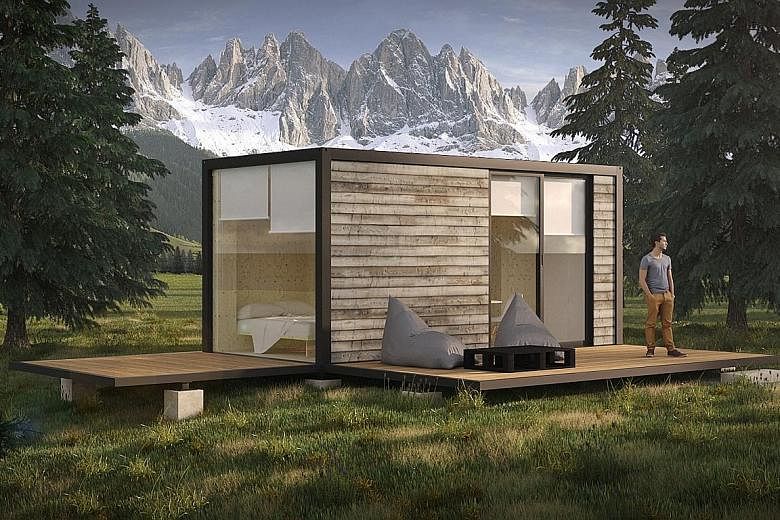BELGRADE • Since the Industrial Revolution, decades of migration from country to city have created an economic imbalance and deepened the ecological crisis.
Cities keep growing, megalopolises acquire the contours of city- states, while the rural countryside is being emptied.
A transformation that was set in motion by globalisation is now meeting growing resistance from generations who have been raised in the cities.
A growing number of young people are seeking a different way of organising their lives - one that implies a return to nature and development of the local economy. This trend can also be found in Serbia, a country in south-eastern Europe with an abundance of untouched natural habitats.
The ECOnomad project - ecological campsites - is one possible solution. Designed by a team consisting of young Belgrade architect Ivo Otasevi and his Swiss partner Stascha Bader, the concept is a flexible dwelling designed for living closer to nature.
"The impact on the natural environment is minimal," explains Mr Bader. "The construction materials are ecological and biodegradable, the structures are temporary in nature, and a self-sustaining system is founded on renewable energy sources."
The inspiration came from Serbian rural architecture. The exterior is decorated with carefully arranged boards, while the interior is lined with high-quality composite wood. Sheep's wool provides natural insulation and the materials for the furniture and interior storage are eco-friendly.
Electricity is supplied through solar cells on the roofs or from a generator run on bio-diesel. Waste water is collected in special tanks which, when full, are emptied at designated sites.
"Our goal for these camps is to mobilise the local human and economic potential, promote local development, crafts, trade and services as well as supply nearby villages with products and food," says Mr Otasevi.

